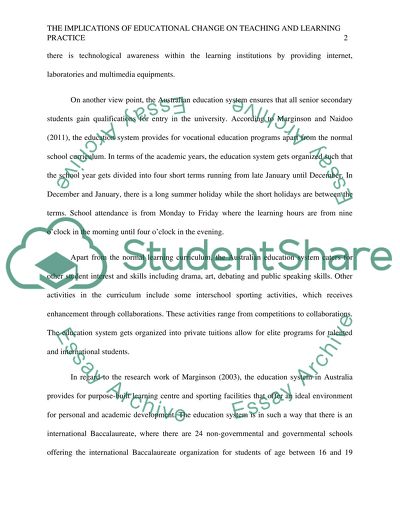Cite this document
(“The Implications of Educational Change on Teaching and Learning Essay”, n.d.)
The Implications of Educational Change on Teaching and Learning Essay. Retrieved from https://studentshare.org/education/1401984-the-implications-of-educational-change-on-teaching-and-learning-practice
The Implications of Educational Change on Teaching and Learning Essay. Retrieved from https://studentshare.org/education/1401984-the-implications-of-educational-change-on-teaching-and-learning-practice
(The Implications of Educational Change on Teaching and Learning Essay)
The Implications of Educational Change on Teaching and Learning Essay. https://studentshare.org/education/1401984-the-implications-of-educational-change-on-teaching-and-learning-practice.
The Implications of Educational Change on Teaching and Learning Essay. https://studentshare.org/education/1401984-the-implications-of-educational-change-on-teaching-and-learning-practice.
“The Implications of Educational Change on Teaching and Learning Essay”, n.d. https://studentshare.org/education/1401984-the-implications-of-educational-change-on-teaching-and-learning-practice.


